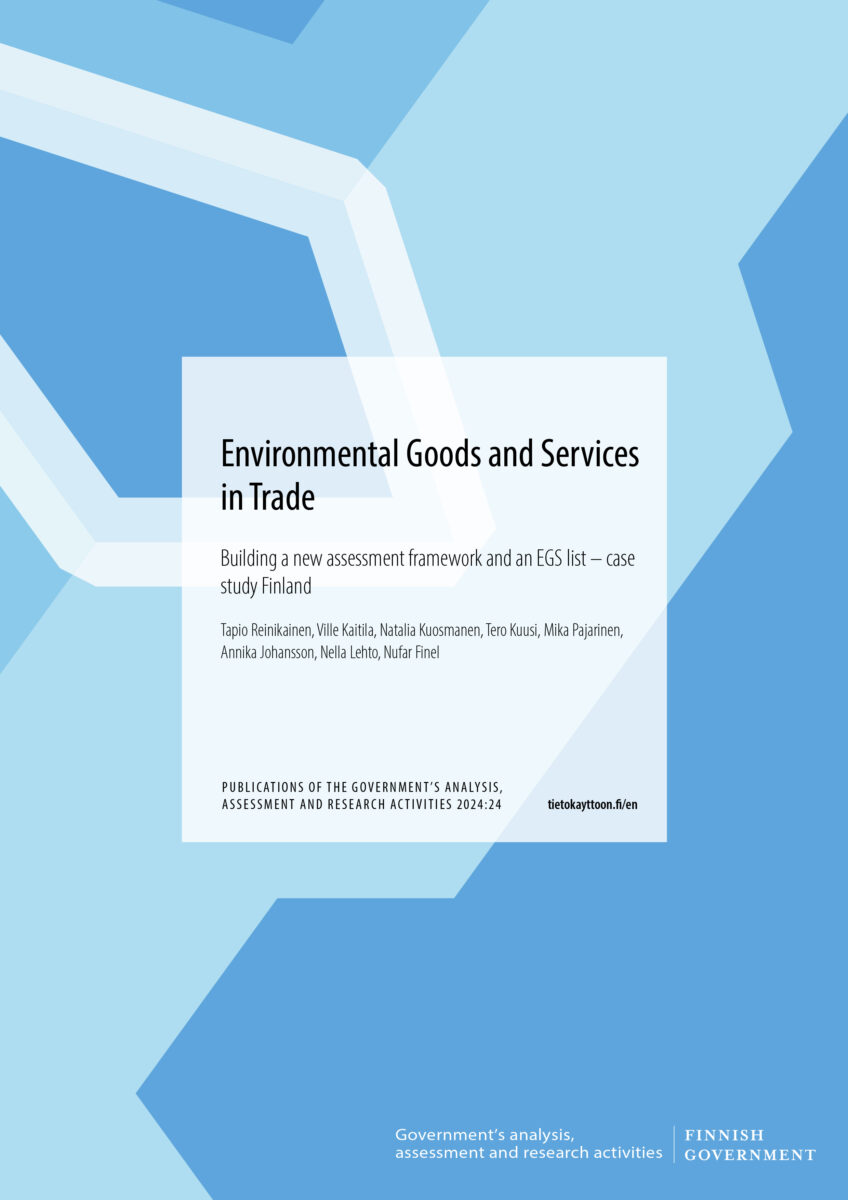
This study reviewed existing Environmental Goods and Services (EGS) listings finding many of them outdated due to rapid technological and scientific advancements. The absence of an agreed upon definition of EGS, together with a lack of clear classification criteria and framework to define EGS, has marked, and in most cases, caused the collapse of negotiations on EGS listing in the World Trade Organization (WTO). The study proposes a draft EPMAP framework to help in creating agreeable EGS listings. In this study a listing of Environmental Goods and Services – EGFI24 list – was created, based mainly on EPMAP-framework. EGFI24-list was used in database-analysis on production and trade.
EGS listings are crucial for understanding the role of environmental economy, especially in addressing the Triple Planetary Crisis of Climate Change, Biodiversity Loss and Pollution. New environmental customs codes are needed to accurately define EGS, to separate them from harmful products and to avoid underestimating the “green economy.” An objective EGS definition system based on environmental science requires significant resources and international cooperation. Progress in financing green technologies is encouraging.
Finnish companies have a slight comparative advantage in EGS the potential is not fully utilized. The Energy transition, Circular economy and Nature-based Solutions offer significant opportunities for sustainable growth. Finnish companies and industrial organizations are generally positive about EU environmental programs and see their role in mitigating the Triple Planetary Crisis.
Publications of the Government’s analysis, assessment and research activities 2024:24.